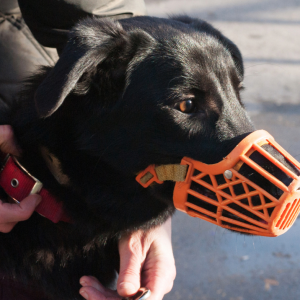Neutering, or castration, is a common procedure that involves the removal of a male dog’s testicles. It’s often done for health, behavioural, or population control reasons. We recently had our male dog neutered and feel I have some expertise to share on the side effects of having a male dog neutered. We decided to do this not for behavioural purposes, solely because he lives with his un-neutered mother. While many pet owners opt for this procedure, it’s important to fully understand the potential side effects it can have on your dog’s health, mood, and overall temperament. Neutering can bring positive changes, but it can also result in certain side effects, such as aggression or shifts in temperament. Here, we’ll explore these impacts in detail, helping pet owners make informed decisions regarding their pets.
The Role of Testosterone in a Male Dog’s Behavior
Testosterone is the primary male hormone responsible for many of the behaviours and characteristics commonly associated with male dogs. This includes traits such as territorial marking, a heightened desire to roam, and a tendency toward aggression or dominance, particularly with other male dogs. Neutering works by removing the testicles, thereby reducing the production of testosterone. The absence of this hormone leads to changes in various behaviours, which can be positive in many cases.
While neutering can help reduce undesirable behaviours like mounting, marking, and aggression towards other males, it can also have other consequences. The hormonal change might make some dogs less confident or more anxious, especially if the procedure is done at an older age. It’s important to note that neutering may not completely eliminate all undesirable behaviours in every dog, as temperament and behaviour are influenced by various factors including breed, genetics, and environment.
Aggression After Neutering: The Unexpected Side Effect
Though neutering is often associated with a decrease in aggression, some dogs may actually become more aggressive after the procedure. This might seem counterintuitive, as many pet owners hope neutering will resolve issues with aggression, particularly between male dogs. However, the effect of neutering on aggression can vary from dog to dog, and some may experience an increase in aggression or a shift in their aggressive tendencies.
The reason behind this is complex and can be linked to several factors, including an imbalance of hormones or a lack of proper socialization. In some cases, neutering may cause a dog to become more reactive, particularly if it leads to changes in how they perceive their environment. The loss of testosterone might affect their coping mechanisms, leading to heightened sensitivity to stress, other dogs, or unfamiliar situations. This might manifest as aggression in certain scenarios.
If your dog exhibits signs of aggression post-neutering, it’s essential to address the behaviour with the help of a veterinarian or a professional dog trainer. In some cases, behavioural therapy or training can help manage the aggression and improve your dog’s overall temperament.
Mood Changes and Emotional Shifts Post-Neutering
Neutering can also cause noticeable mood changes in male dogs. Since testosterone influences a dog’s mood and emotional responses, removing the source of this hormone can lead to changes in behaviour and temperament. Some dogs may experience a drop in energy levels, while others may become more laid-back or even more reserved. For some dogs, neutering might help alleviate anxiety and stress, while others may become more nervous or withdrawn.
While many dogs seem to adjust well after neutering, it’s crucial to monitor your pet for any signs of emotional distress. If your dog becomes excessively shy, anxious, or fearful, it could be a sign that the hormonal shift has impacted their mood. In these cases, it’s important to provide a supportive and stable environment, along with professional guidance if necessary.
Neutering and a Dog’s General Temperament
The overall temperament of a dog can be influenced by neutering, but the extent of the change largely depends on the dog’s personality and age. Younger dogs who undergo the procedure typically show fewer signs of drastic mood swings compared to older dogs, whose personalities may have already become more established. Neutering can make some dogs more docile and less driven by testosterone-driven urges like dominance or territoriality. This can make them easier to manage, particularly in multi-dog households.
For some dogs, neutering results in a calmer and more well-balanced temperament, as they may no longer feel the need to assert themselves aggressively or engage in behaviours associated with unaltered males. However, other dogs may exhibit changes in their social behaviours, becoming more submissive or less confident. While these changes might not be severe, they can affect your dog’s ability to interact with other dogs or people.
Health Benefits of Neutering and Long-Term Effects
Apart from behavioral changes, neutering offers several health benefits, which contribute to a dog’s overall well-being. Neutering can reduce the risk of prostate problems, testicular cancer, and certain types of infections. Additionally, it can help prevent unwanted pregnancies, which reduces the number of stray animals.
However, it’s important to consider that neutering can also have some potential long-term health risks. For example, neutered dogs may be at a slightly higher risk for conditions like hip dysplasia or obesity. This is because the hormonal changes brought on by neutering can affect a dog’s metabolism and energy levels. As a result, neutered dogs might be less active and more prone to weight gain if not properly managed with diet and exercise.
Impact of Neutering on Energy Levels and Activity
In some cases, neutered dogs may experience a decrease in energy levels. This is particularly true for older dogs that undergo the procedure later in life. Neutering can lead to reduced physical activity, as the dog may no longer feel as driven to roam or engage in hyperactive behaviours. While this can be an advantage for owners looking for a more low-key pet, it’s important to ensure that your dog still gets enough exercise to maintain a healthy weight and avoid the potential for obesity.
Dogs who are neutered at an early age may not experience significant changes in energy levels, but it’s essential to monitor their activity to ensure they remain engaged and physically fit.
Neutering’s Effect on Your Dog’s Relationship with You
Neutering can have subtle effects on your relationship with your dog. With a decrease in certain dominant behaviours, neutered dogs may be easier to manage and train. They may be more willing to focus on commands and follow instructions. This can result in a more cooperative and harmonious relationship between you and your dog.
However, as mentioned earlier, some dogs may exhibit changes in mood or temperament post-neutering. If your dog becomes more anxious or less confident, it might take additional effort to reassure them and build their trust. Providing positive reinforcement and engaging in bonding activities will help strengthen your relationship with your neutered dog.
Conclusion: Weighing the Pros and Cons of Neutering
Deciding whether or not to get your male dog neutered is a personal choice, and it’s essential to consider the various side effects it can have on their health, behaviour, and personality. Neutering can help reduce unwanted behaviours like aggression and marking, but it can also lead to unexpected side effects such as aggression, mood changes, or shifts in temperament. Ultimately, the decision to neuter should be based on your dog’s age, personality, and your specific goals as a pet owner.
By understanding the potential effects of neutering, you can make an informed decision and provide the best care for your dog. Whether you’re looking to reduce aggression, prevent unwanted behaviours, or ensure your pet’s health and well-being, neutering can be an important tool for many pet owners. Just remember, every dog is unique, and it’s important to monitor their behaviour and adjust care accordingly after the procedure.
We did notice some small side effects after having our male dog neutered. His aggression seems to be a little increased, however, the vet has reassured me this is a temporary side effect which sometimes effects a male dog after they are neutered.
We hope you enjoyed this post on The Side Effects of Having a Male Dog Neutered, for something similar, see How to Help and Care for Your Dog When She Is in Season.
Discover more from A Tail of Two Dogs
Subscribe to get the latest posts sent to your email.





Leave a Reply